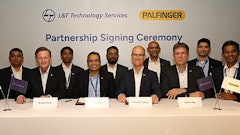The U.S. Department of Energy (DOE) has announced $19.4 million for 22 new cost-shared projects to accelerate the research of advanced battery, lightweight materials, engine technologies, and energy efficient mobility systems. This Vehicle Technologies Office (VTO) funding reasserts that investment in advanced, energy efficient transportation technologies and systems will improve our nation's energy security, help consumers and businesses save money on transportation energy costs, and strengthen U.S. economic competitiveness.
Selected projects include:
- Phase 1 "Battery Seedling" Projects: These 15 projects are aimed at innovative battery materials and approaches that complement the Vehicle Technologies Office Battery500 Consortium's research to more than double the specific energy (to 500 watt-hours per kilogram) of lithium battery technologies. These projects enable smaller, safer, lighter weight, and less expensive battery packs that ultimately will make electric vehicles more affordable. Promising phase 1 awardees will be competitively down-selected at the end of 18 months for a second phase of research.
The Department of Army will contribute an additional $1 million through the Advanced Vehicle Power Technology Alliance to support these projects.
- Energy Efficient Mobility Systems Projects: The three selected projects will conduct research that evaluates energy savings benefits from connected and automated vehicles. They will lead to the creation of new software, controls, and technologies that use connectivity and automation to improve vehicle efficiency, a novel research vehicle testbed to evaluate connected and automated technologies, and analyze the system-wide energy opportunities available through connectivity and automation combined with shared mobility.
- Integrated Computation Materials Engineering (ICME) and Novel Emission Control Strategy Projects: Two projects will research, develop, and use integrated computation materials engineering (ICME) techniques to develop low cost carbon fiber from a variety of feedstocks and precursors that can be used to make carbon fiber with less energy and lower cost. An additional two projects will research and develop novel emission control strategies for advanced combustion engines.



















